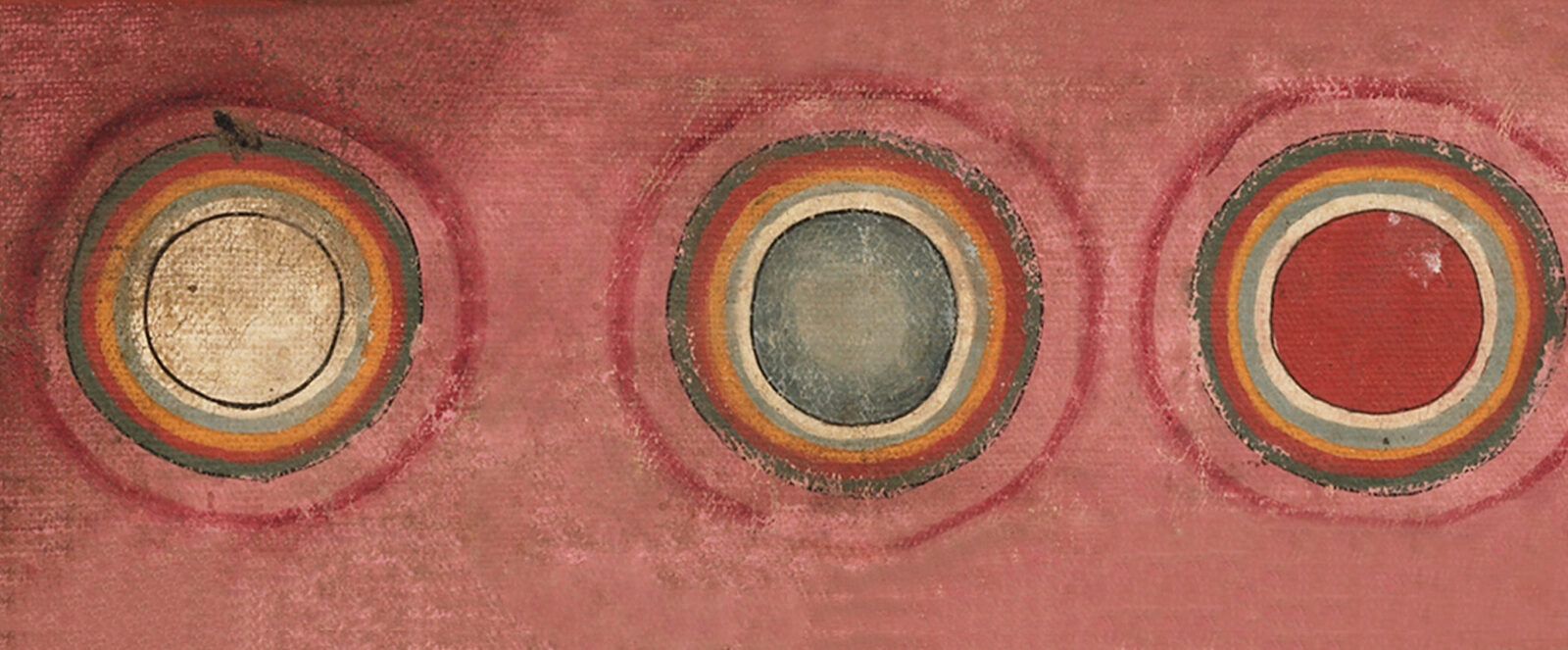Artists and contributors from the exhibition The World Is Sound give us an inside look at the various aspects of this immersive medium. From a peek into their artistic process to a more experiential understanding of sound, their commentary examines how we can break down our sense of hearing and the multitude of ways sound can be created, analyzed, and perceived in the world around us.
A contributor to Spiral magazine, sound expert and author, Christoph Cox illustrates differences between listening and hearing.
As heard in the Rubin Museum elevators, featured artists and contributors look back to their first experiences of sound.
Artist Laetitia Sonami helps us understand the ineffable qualities of sound and their intrinsic relationship to Buddhism.
Pioneering artist Eliane Radigue describes the impact Buddhism has had on her artistic practice.
Artist Bob Bielecki describes the process of recording in natural environments and its relationship to our sensory experiences.
As heard in the Rubin Museum elevators, featured artists and contributors contemplate the various ways in which we listen and the ways listening can impact us.
Artist Hildegard Westerkamp considers how the act of listening can relate to activism.
Artist Jules Gimbrone discusses how artistic practice is being affected by the 2017 political climate, particularly towards trans issues in the U.S.
Artist Laetitia Sonami highlights the role that gender plays in the world of sound art.
Artist Ernst Karel gives insight into his beginnings in sound art and the moment his approach to it changed.
Artist Robert Lowe shares an anecdote that asks us to consider the question, Is sound a ghost?
Artist John Giorno describes how he first realized the ways in which an individual could work with their own mind.
Acoustic designer and artist Daniel Neumann illustrates the important function and potential dangers of designing sonic spaces.
Contributor Miya Masaoka reminds us that the field of sound art is relatively new in the world.
Artist Robert Lowe details his artistic process, including composing for the notion of a future sound.
Artist Carter Emmart describes how sound can be translated in space.
Artist Nate Wooley’s artistic response to the question, “What is the sound of the creation?” asks us to consider the ways we are all interconnected.
A contributor to Spiral magazine, sound expert and author, Christoph Cox illuminates the artistry of the drone.
A contributor to Spiral magazine, Christoph Cox challenges us to stop and listen.
Carter Emmart, Director of Astrovisualization at the American Museum of Natural History, explains how the universe was believed to begin with OM.
Artist Robert Aiki Aubrey Lowe helps us begin to understand the nature of sound by understanding our own bodies.
Artist Nate Wooley gives us an exclusive perspective on what it is like to work with the innovative composer Eliane Radigue.
The artist collective MSHR encourage us to consider sound in the ways we might think about large bodies of water.
Artist C. Spencer Yeh tells us how his own biography plays a role in his approach to working with sound.
Artist Samita Sinha encourages us to find our own power within ourselves and our voices.
Artist Jules Gimbrone contemplates what a world would look like if we didn’t privilege the sense of sight.
As heard in the Rubin Museum elevators, featured artists and contributors answer the challenging question, “What do you think will be the last sound you hear before you die?”
This exhibition is made possible through the generosity of HARMAN. Major support is provided by a grant from the National Endowment for the Arts and Rasika and Girish Reddy. The Rubin also thanks Preethi Krishna and Ram Sundaram and contributors to the 2017 Exhibitions Fund.
